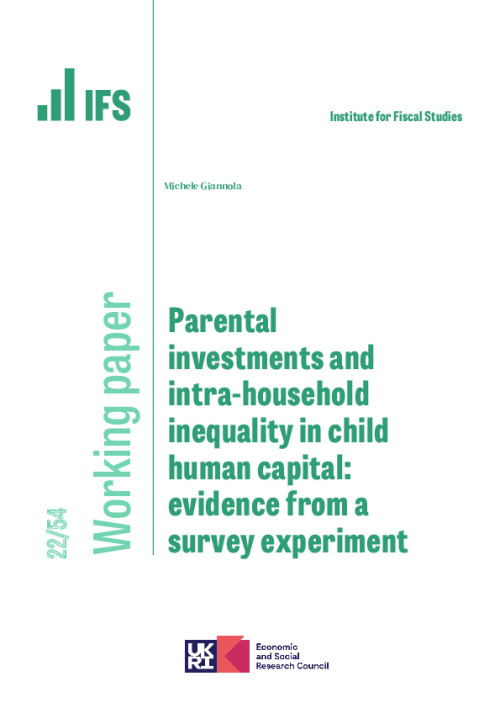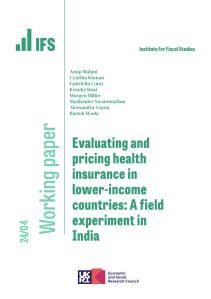Intra-household inequality explains up to 50 percent of the cross-sectional variation in child human capital in the developing world. I study the role played by parents’ educational investment to explain this inequality and its determinants. To mitigate the identification problem posed by observational data, I design a survey experiment with poor households in India. I develop new theory-driven survey measures based on hypothetical scenarios that allow me to separately identify parents’ beliefs about the human capital production function and their preferences for inequality in children’s outcomes, as well as study the role of household resources. I find that investment decisions are driven by efficiency considerations rather than inequality concerns over children’s final outcomes. Because parents perceive investment to be 12 percent more productive for the higher-ability child, they allocate 10 percent more educational inputs to this child. Resources are important, as constrained parents select more unequal allocations. Counterfactual simulations indicate that policy interventions can have important intra-household distributional impacts through parents’ behavioural responses.









